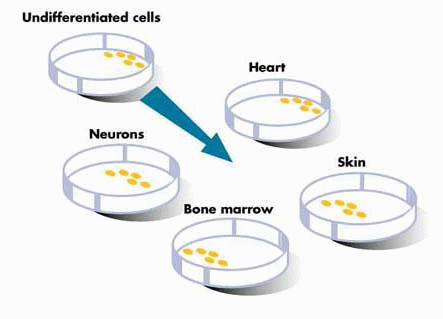Michael Fumento
Factual · Powerful · Original · Iconoclastic
False Hoax
January 01, 2001 · Michael Fumento · The Weekly Standard · Stem CellsIf there were a Charles Krauthammer fan club, I would be a gold star member.
That’s why I was taken aback by his piece "The Great Stem Cell Hoax" (The Weekly Standard, August 20/August 27). In it he repeatedly asserts the idea that "stem cells are the cure of the mid 21st century."
The hoax is the claim that only embryonic stem cells promise so much so soon.
After all, therapeutic stem cell use in bone marrow transplants has been common since the early 1990s. Umbilical cord stem cell therapy began in earnest a few years later, and now some 70 different diseases, primarily forms of leukemia, are treated with umbilical cord stem cells. Recent studies have shown that adults can benefit from umbilical cord cells as well as children, even when cells are not closely matched.

Modex Therapeutics of Switzerland is in the second of a three-phase human trial to grow skin grafts from stem cells found in hair follicles. Thirty-six patients with diabetic ulcers have already benefited, and regulatory approval could come next year.
In July, surgeons at the University of Rostock successfully transplanted marrow stem cells into a heart attack patient. It’s too early to say whether the new cells are actually building tissue, but Osiris Therapeutics in Baltimore has rebuilt cardiac tissue in damaged pig hearts (pig hearts are the closest to ours) as well as those of rodents. They hope to begin human trials this year.
Do No Harm, a D.C.-based coalition that opposes use of embryonic stem cells, notes over 30 different anti-cancer uses for adult stem cells, all tested on humans and all appearing in peer-reviewed medical literature. Further, Do No Harm lists about 100 non-embryonic stem cell experiments on animals that have shown success against every disease Krauthammer names, including Parkinson’s, diabetes, Alzheimer’s, paralysis, and many more. Lab animal physiology isn’t so different from our own as to assume that many of these results won’t translate into results for humans.
Krauthammer is correct to point out that the history of medical research is a history of hype. Who can forget the "War on Cancer"? Those who claim that stem cell therapy can "end human suffering" are as cracked as any utopian.
On the other hand, balding and impotency remedies were snake oil for thousands of years. Now there exist FDA-approved medicines for these ailments. I predict that some of the wonderful stem cell therapies that will tremendously alleviate human suffering will receive regulatory approval for general use not in 50 years but within five.
